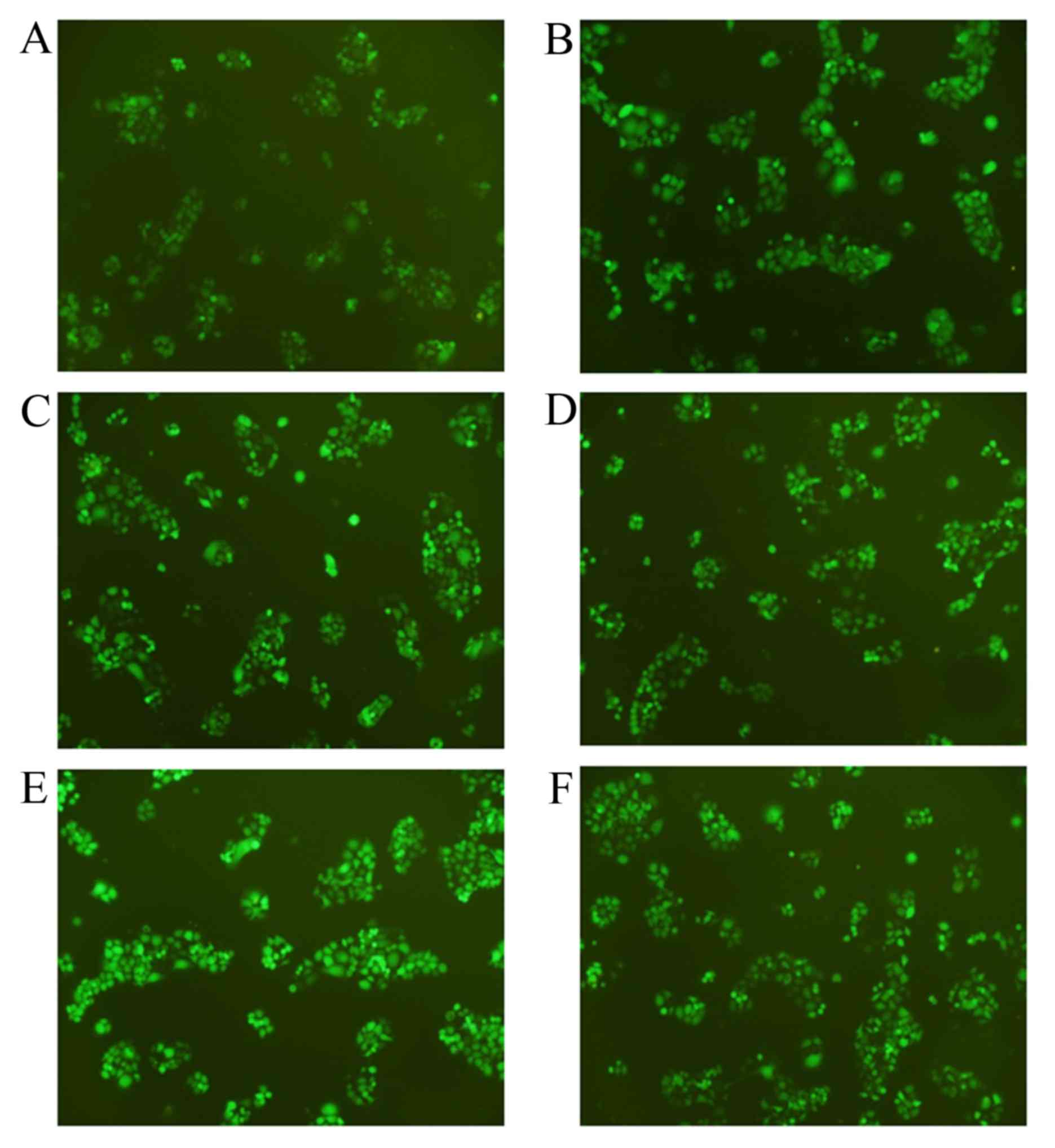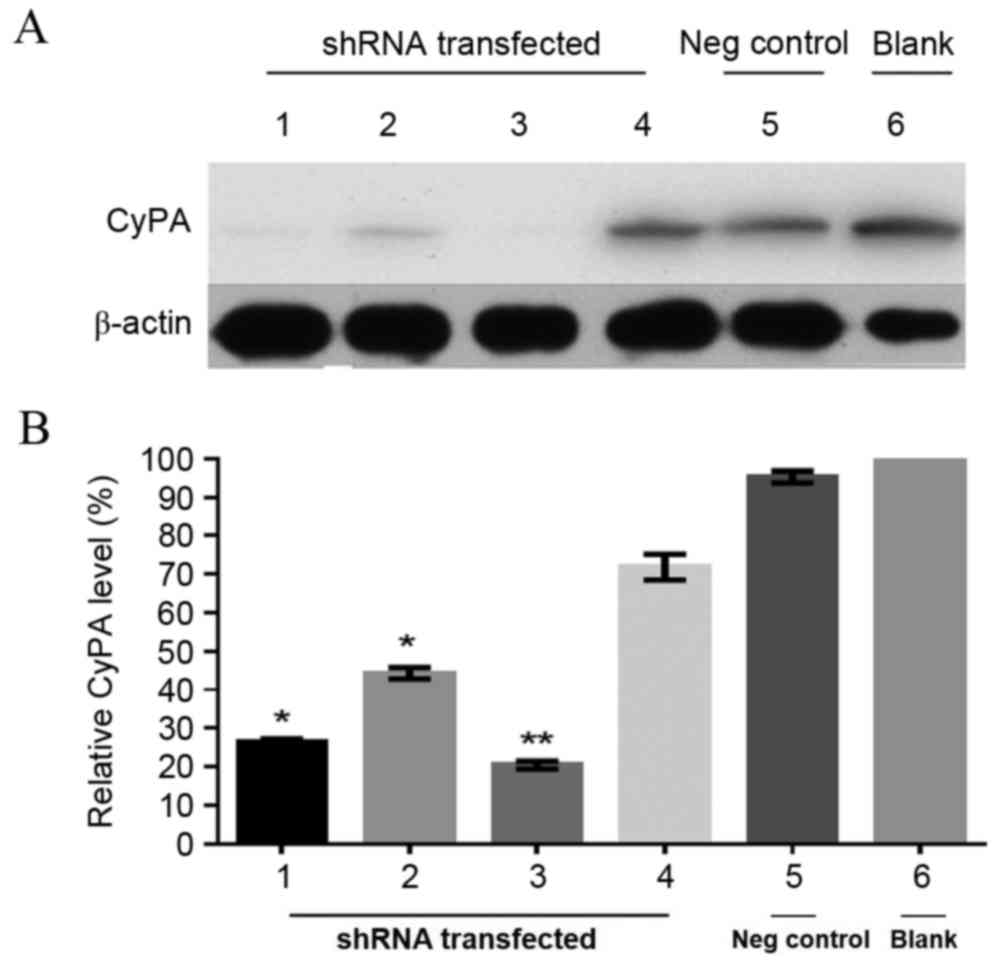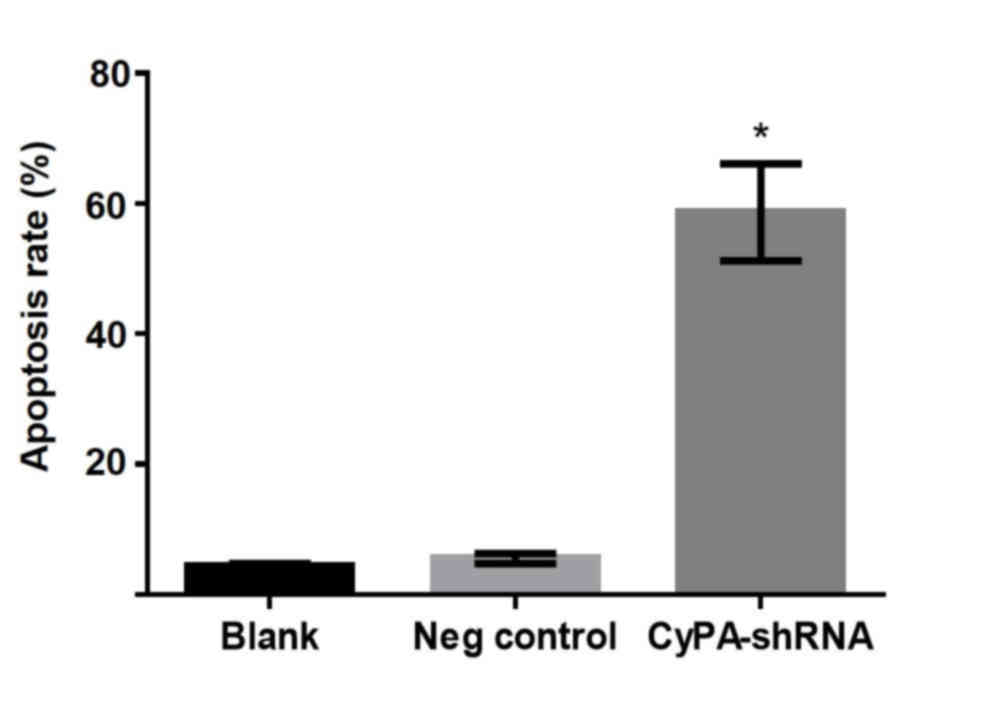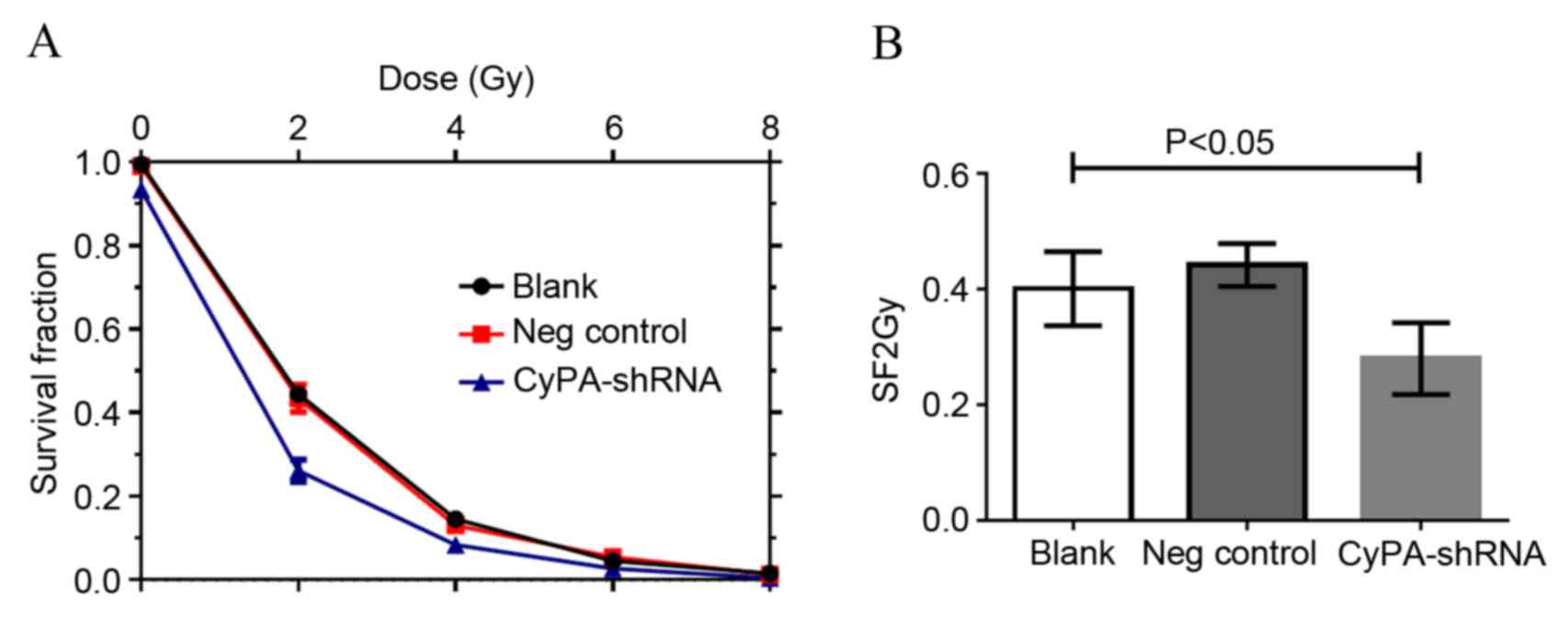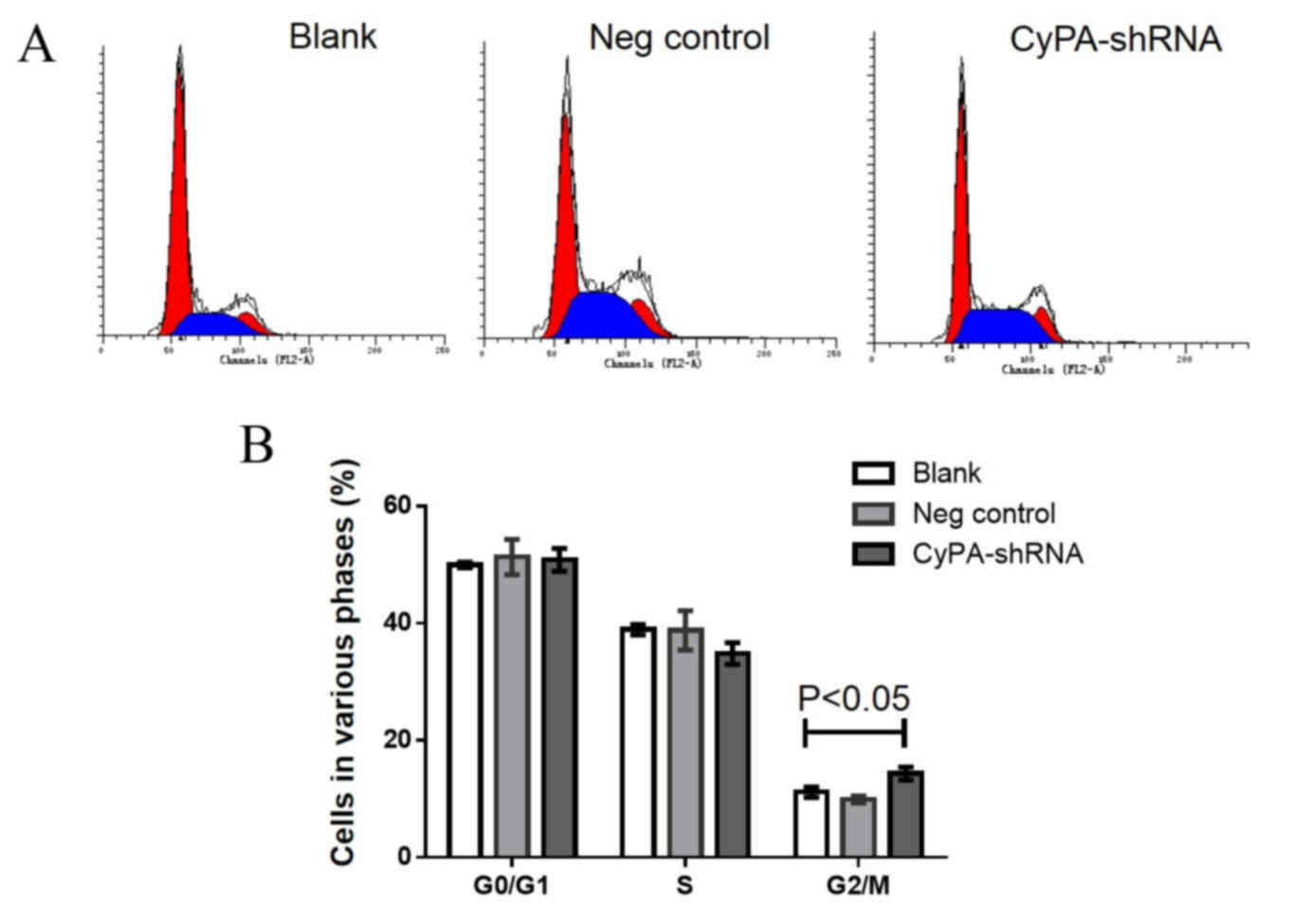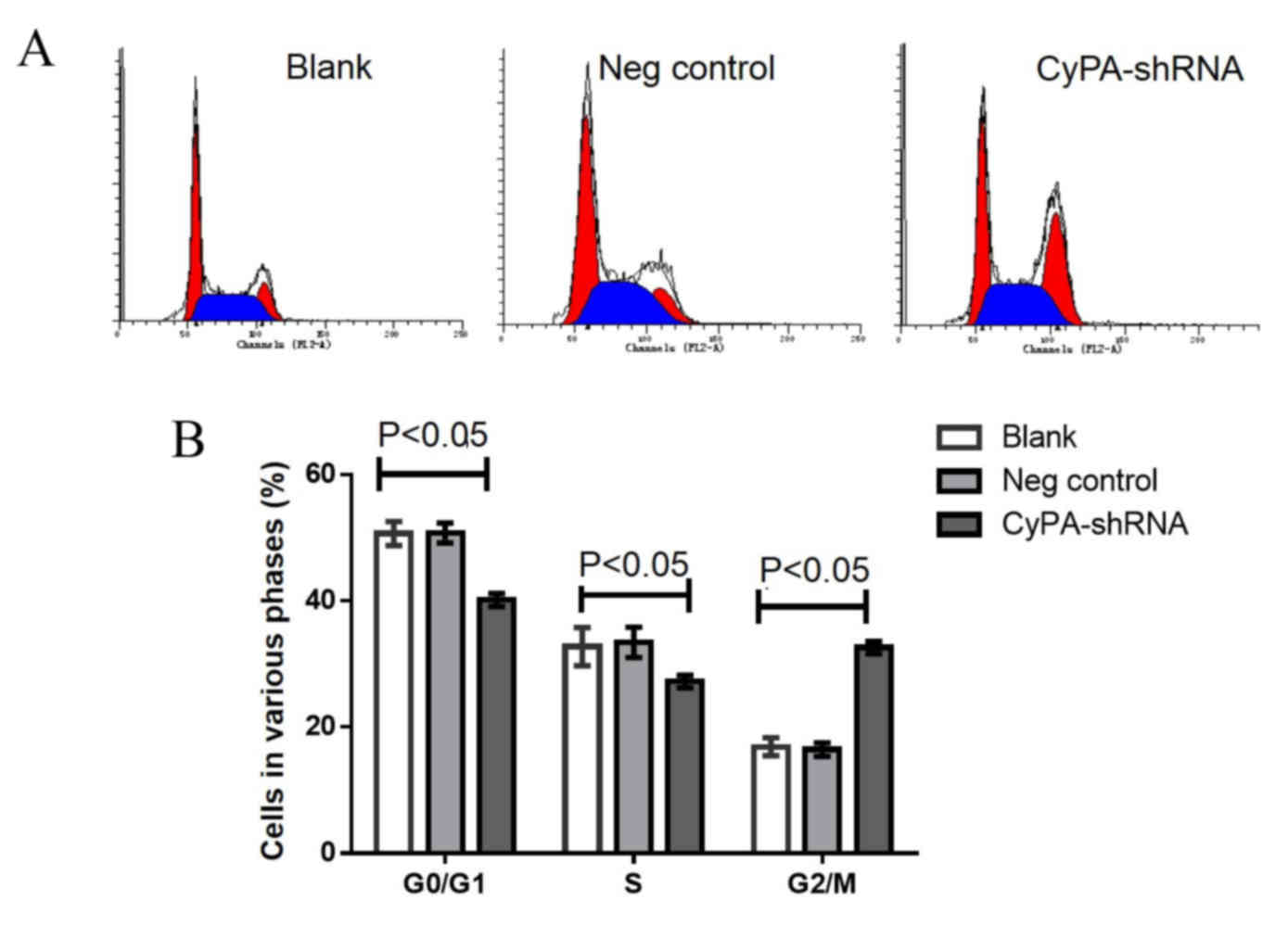|
1
|
Siegel R, Ward E, Brawley O and Jemal A:
Cancer statistics, 2011: The impact of eliminating socioeconomic
and racial disparities on premature cancer deaths. CA Cancer J
Clin. 61:212–236. 2011. View Article : Google Scholar : PubMed/NCBI
|
|
2
|
Jemal A, Center MM, DeSantis C and Ward
EM: Global patterns of cancer incidence and mortality rates and
trends. Cancer Epidemiol Biomarkers Prev. 19:1893–1907. 2010.
View Article : Google Scholar : PubMed/NCBI
|
|
3
|
Houston KA, Henley SJ, Li J, White MC and
Richards TB: Patterns in lung cancer incidence rates and trends by
histologic type in the United States, 2004–2009. Lung Cancer.
86:22–28. 2014. View Article : Google Scholar : PubMed/NCBI
|
|
4
|
Baker S, Dahele M, Lagerwaard FJ and Senan
S: A critical review of recent developments in radiotherapy for
non-small cell lung cancer. Radiat Oncol. 11:1152016. View Article : Google Scholar : PubMed/NCBI
|
|
5
|
Gomez-Casal R, Bhattacharya C, Ganesh N,
Bailey L, Basse P, Gibson M, Epperly M and Levina V: Non-small cell
lung cancer cells survived ionizing radiation treatment display
cancer stem cell and epithelial-mesenchymal transition phenotypes.
Mol Cancer. 12:942013. View Article : Google Scholar : PubMed/NCBI
|
|
6
|
Ma W, Ma CN, Li XD and Zhang YJ: Examining
the effect of gene reduction in miR-95 and enhanced
radiosensitivity in non-small cell lung cancer. Cancer Gene Ther.
23:66–71. 2016. View Article : Google Scholar : PubMed/NCBI
|
|
7
|
Torres-Roca JF and Stevens CW: Predicting
response to clinical radiotherapy: Past, present, and future
directions. Cancer Control. 15:151–156. 2008.PubMed/NCBI
|
|
8
|
Thapar R: Roles of Prolyl Isomerases in
RNA-mediated gene expression. Biomolecules. 5:974–999. 2015.
View Article : Google Scholar : PubMed/NCBI
|
|
9
|
Nigro P, Pompilio G and Capogrossi MC:
Cyclophilin A: A key player for human disease. Cell Death Dis.
4:e8882013. View Article : Google Scholar : PubMed/NCBI
|
|
10
|
Feng W, Xin Y, Xiao Y, Li W and Sun D:
Cyclophilin A enhances cell proliferation and xenografted tumor
growth of early gastric cancer. Dig Dis Sci. 60:2700–2711. 2015.
View Article : Google Scholar : PubMed/NCBI
|
|
11
|
Campa MJ, Wang MZ, Howard B, Fitzgerald MC
and Patz EJ Jr: Protein expression profiling identifies macrophage
migration inhibitory factor and cyclophilin a as potential
molecular targets in non-small cell lung cancer. Cancer Res.
63:1652–1656. 2003.PubMed/NCBI
|
|
12
|
Qian Z, Zhao X, Jiang M, Jia W, Zhang C,
Wang Y, Li B and Yue W: Downregulation of cyclophilin A by siRNA
diminishes non-small cell lung cancer cell growth and metastasis
via the regulation of matrix metallopeptidase 9. BMC Cancer.
12:4422012. View Article : Google Scholar : PubMed/NCBI
|
|
13
|
Howard BA, Furumai R, Campa MJ, Rabbani
ZN, Vujaskovic Z, Wang XF and Patz EF Jr: Stable RNA
interference-mediated suppression of cyclophilin A diminishes
non-small-cell lung tumor growth in vivo. Cancer Res. 65:8853–8860.
2005. View Article : Google Scholar : PubMed/NCBI
|
|
14
|
Huang JC, Zhao PC, Zhang HZ and Wang H: A
proteomical study on the radiosensitized target molecules of
fuzheng zengxiao formula in pulmonary adenocarcinoma nude mice
model. J Tradit Chin Med. 31:3–6. 2011. View Article : Google Scholar : PubMed/NCBI
|
|
15
|
Zhang S, Joseph G, Pollok K, Berthoux L,
Sastry L, Luban J and Cornetta K: G2 cell cycle arrest and
cyclophilin A in lentiviral gene transfer. Mol Ther. 14:546–554.
2006. View Article : Google Scholar : PubMed/NCBI
|
|
16
|
Dull T, Zufferey R, Kelly M, Mandel RJ,
Nguyen M, Trono D and Naldini L: A third-generation lentivirus
vector with a conditional packaging system. J Virol. 72:8463–8471.
1998.PubMed/NCBI
|
|
17
|
Sampsonas F, Ryan D, McPhillips D and
Breen DP: Molecular testing and personalized treatment of lung
cancer. Curr Mol Pharmacol. 7:22–32. 2014. View Article : Google Scholar : PubMed/NCBI
|
|
18
|
Brazin KN, Mallis RJ, Fulton DB and
Andreotti AH: Regulation of the tyrosine kinase Itk by the
peptidyl-prolyl isomerase cyclophilin A. Proc Natl Acad Sci USA.
99:1899–1904. 2002. View Article : Google Scholar : PubMed/NCBI
|
|
19
|
Choi KJ, Piao YJ, Lim MJ, Kim JH, Ha J,
Choe W and Kim SS: Overexpressed cyclophilin A in cancer cells
renders resistance to hypoxia-and cisplatin-induced cell death.
Cancer Res. 67:3654–3662. 2007. View Article : Google Scholar : PubMed/NCBI
|
|
20
|
Li Y, Guo H, Dong D, Wu H and Li E:
Expression and prognostic relevance of cyclophilin A and matrix
metalloproteinase 9 in esophageal squamous cell carcinoma. Diagn
Pathol. 8:2072013. View Article : Google Scholar : PubMed/NCBI
|
|
21
|
Obchoei S, Weakley SM, Wongkham S,
Wongkham C, Sawanyawisuth K, Yao Q and Chen C: Cyclophilin A
enhances cell proliferation and tumor growth of liver
fluke-associated cholangiocarcinoma. Mol Cancer. 10:1022011.
View Article : Google Scholar : PubMed/NCBI
|
|
22
|
Kaliberov SA, Kaliberova LN, Yan H, Kapoor
V and Hallahan DE: Retargeted adenoviruses for radiation-guided
gene delivery. Cancer Gene Ther. 23:303–314. 2016. View Article : Google Scholar : PubMed/NCBI
|
|
23
|
Zhuang HQ, Sun J, Yuan ZY, Wang J, Zhao
LJ, Wang P, Ren XB and Wang CL: Radiosensitizing effects of
gefitinib at different administration times in vitro. Cancer Sci.
100:1520–1525. 2009. View Article : Google Scholar : PubMed/NCBI
|
|
24
|
Björk-Eriksson T, West C, Karlsson E and
Mercke C: Tumor radiosensitivity (SF2) is a prognostic factor for
local control in head and neck cancers. Int J Radiat Oncol Biol
Phys. 46:13–19. 2000. View Article : Google Scholar : PubMed/NCBI
|
|
25
|
Pawlik TM and Keyomarsi K: Role of cell
cycle in mediating sensitivity to radiotherapy. Int J Radiat Oncol
Biol Phys. 59:928–942. 2004. View Article : Google Scholar : PubMed/NCBI
|
|
26
|
Wang T, Carraway RE, LaRoche D and
FitzGerald TJ: Disruption of ERK1/2 Sensitizes radiation resistance
prostate cancer cells to paclitaxel and ionizing radiation. Int J
Radiat Oncol Biol Phys. 90:(Suppl). S8062014. View Article : Google Scholar
|















